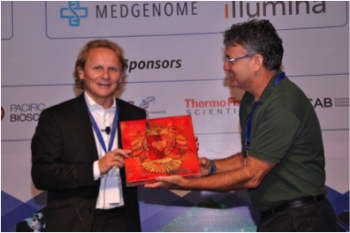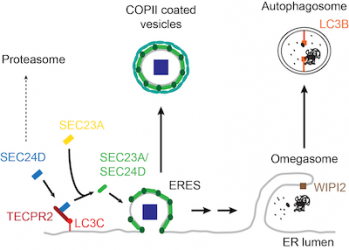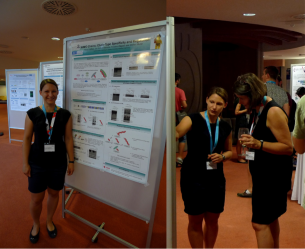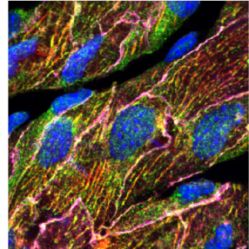News from the Institute

Prof. Ivan Dikic has been appointed as a senior editor of the scientific journal eLife in the area of molecular signalling and quality control pathways. Since 2013, he has been serving on the board of editors of this unique journal, which is driven by a non-profit, researcher-led initiative and is supported by the Howard Hughes Medical Institute, the Wellcome Trust and the Max Planck Society.
... (read more)
Prof. Ivan Dikic receives this years’ SciGenom Research Foundation (SGRF) Excellence in Science Award for his contribution to molecular signalling and biomedicine.
The award was presented at the 2015 NGBT Conference in Hyderabad, India, where Ivan Dikic was giving a keynote lecture on ubiquitin and autophagy networks in health and disease.
... (read more)
Hereditary spastic paraplegias (HSPs) are a diverse group of neurodegenerative diseases that are characterized by axonopathy of the corticospinal motor neurons. A mutation in the gene encoding for Tectonin β-propeller containing protein 2 (TECPR2) causes HSP that is complicated by neurological symptoms.
While TECPR2 is human ATG8 binding protein and positive regulator of autophagy, the exact function of TECPR2 is unknown. As published in the latest issue of Molecular Cell, the group of Christian Behrends revealed that TECPR2 interacts with the COPII coat protein SEC24D to stabilize components of the COPII coating machinery.
... (read more)
Anne Gärtner, PhD student in the group of Prof. Stefan Müller, was awarded with the Nature Reviews poster prize at the EMBO meeting “Ubiquitin and ubiquitin-like modifiers” (Cavtat, Croatia).
Anne’s work elucidates the modification of the small ubiquitin-related protein SU MO with an acetyl group and the impact of this post-translational modification on SUMO chain formation and downstream cellular effects.
... (read more)
As reported in today’s online version of Circulation Research the group of Dr. Stefanie Oess has identified the F-BAR protein NOSTRIN as a crucial factor in the development of endothelial dysfunction, hypertension and diastolic heart failure.
In this study the authors show that NOSTRIN is necessary for the correct positioning of the muscarinic acetylcholine receptor M3R at the plasma membrane of endothelial cells.
In the absence of NOSTRIN the function of the M3R was markedly impaired, resulting in abolition of the calcium response to acetylcholine, an impaired activation of endothelial nitric oxide synthase and the inhibition of vascular relaxation, leading to hypertension and diastolic heart failure.
... (read more)